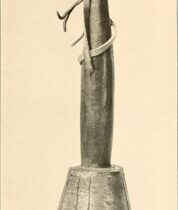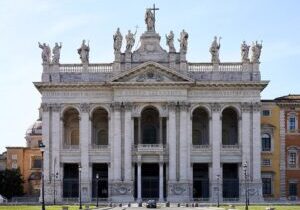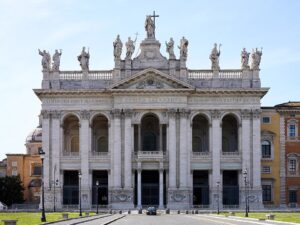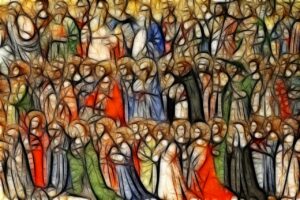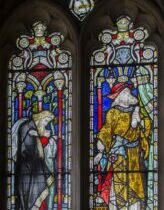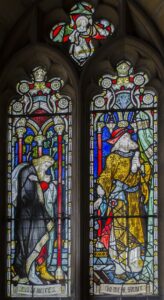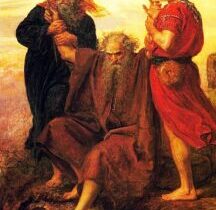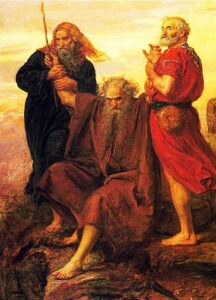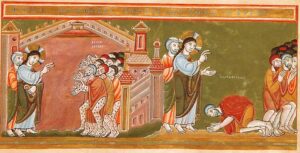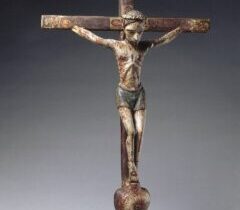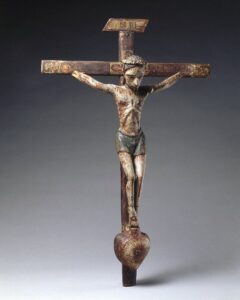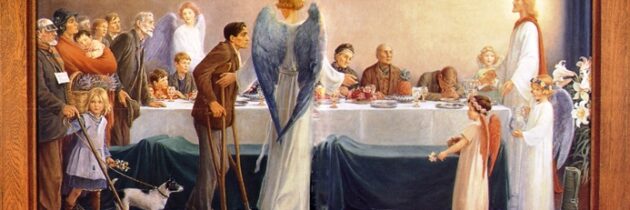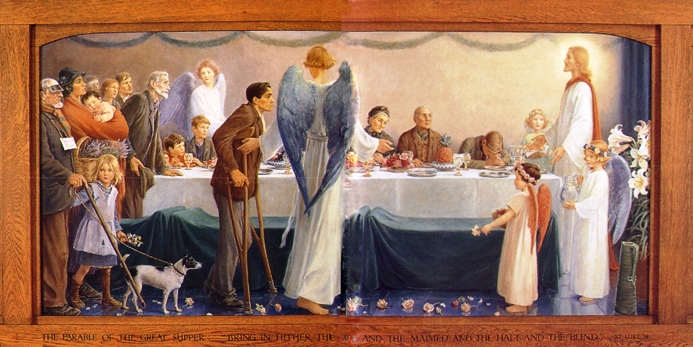When Scripture Gets Used as a Cudgel
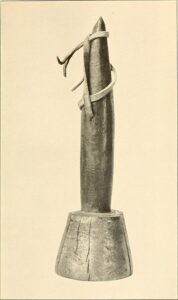 The end of our Liturgical year grows close and we hear prophecies and warnings about how we are to live and how to prepare for the return of the Lord on the last day. Sometimes we read them and are reassured that our trials and sufferings will pass and the Lord will make everything right in the end. Sometimes, however, we read these scripture passages and apply them to social and political challenges we are facing in these particular times. When this happens, it’s all too easy for Scripture to get used as a cudgel, to judge and punish people whose lives may be more challenging than our own and whose resources are more limited.
The end of our Liturgical year grows close and we hear prophecies and warnings about how we are to live and how to prepare for the return of the Lord on the last day. Sometimes we read them and are reassured that our trials and sufferings will pass and the Lord will make everything right in the end. Sometimes, however, we read these scripture passages and apply them to social and political challenges we are facing in these particular times. When this happens, it’s all too easy for Scripture to get used as a cudgel, to judge and punish people whose lives may be more challenging than our own and whose resources are more limited.
The second letter of St. Paul to the Thessalonians provides an example of this. People in the community were anxious for the second coming of Jesus. No one knew when that would be, but the expectation was that it would be soon – before the death of some who were currently living. Living as Christians in the city was not easy. There was a good deal of opposition and misunderstanding among the larger non-Christian community regarding what Christians believed and how they lived.
Making everything more challenging, visitors from other areas had come to the city as well, bringing predictions of the quickly approaching end of the world. If everything was going to end soon, then the most important thing was not to keep on earning a living and making sure everyone in the community had what they needed to live. The important thing in their view was to preach and try to bring more people to Christianity. Those whose ways might not be exactly what the new preachers envisioned were criticized by these newcomers. Some of the new visitors/preachers expected the community to provide food and drink to support them. They didn’t see any reason to get jobs themselves – they were focused on the coming of the end in a very short time!
St. Paul spoke out against this. “You know how one must imitate us. For we did not act in a disorderly way among you, nor did we eat food received free from anyone.” In fact, Paul worked as a tent maker wherever he went. It was his trade and he worked at it quietly to support himself while he spread the Good News and welcomed new Christians into a community of faith. Each person was expected to contribute to the community in some way. Not all would be able to work and bring in money. But all could contribute something and all shared what they had.
His words are all too often quoted out of context: “we instructed you that if anyone was unwilling to work, neither should that one eat.” These words are sometimes used today as justification for cutting food aid to families and children whose income is low, even when all adults are working. They are used to exclude people who are unable to work or unable to find work from receiving health care through the Medicaid program. They are used to justify exclusion from other social services as well. And most distressing of all, these acts are being presented as a justified action based on Christian teaching!
This is not what St. Paul was saying. It is not Christian teaching. St. Paul called on the community, especially those who had been refusing to share in the financial support of the community, to work quietly along with the others and earn the food they were eating. All are called to share the Good News and all contribute in their own way. (2 Th 3:7-12)
The really critical thing in all of this is the ancient scriptural imperative to care for those who need extra help in the community. The Lord sides with the poor, the outcast, immigrants, children, the sick, the elderly. If these folks can’t always support themselves, that’s OK. The community is responsible to help them. They do what they can. For some, such as children or the elderly, that something may be to study or to help care for the children while other adults are working. There are many ways to contribute to the common life of the community.
Jesus spoke of the end times as well. Visiting the great Temple in Jerusalem, filled with riches and offerings, he gave this prophecy: “All that you see here – the days will come when there will not be left a stone upon another stone that will not be thrown down.” This prophecy came to pass in 70 CE when the Romans destroyed the temple and forced the exile of most of the people of the land.
Both before and after the destruction of the temple, believers would be persecuted. Families would turn over their own members to the authorities. Some would be killed. Others would be tossed out of their religious communities.
It was not going to be a pretty thing for those who followed Jesus. Life would be tough. “But not a hair on your head will be destroyed. By your perseverance you will secure your lives.” (Lk 21:5-19)
Life is more than just the physical experience of our day-to-day activities. It’s ever so much more. It’s life in the Kingdom of God, which starts here and now.
As the prophet Malachi noted in the final book of the Hebrew Scriptures, “The day is coming, blazing like an oven, when all the proud and all evildoers will be stubble, and the day that is coming will set them on fire…” A frightening thing indeed! Yet there is hope for those who follow and love the Lord. “There will arise the sun of justice with its healing rays.” (Mal 3:19-20a)
Moving through our lives in these difficult and uncertain times, we are called once again to work quietly for the Kingdom of God, caring for the vulnerable and gently speaking words of hope. No using Scripture as a cudgel. No excluding people whose income is low, or whose health is poor, or whose minds are not stable, or whose parents have not found high-paying work, or who had to leave their homes in search of safety and opportunity for themselves and their children!
The end of time is coming. The end of the world, not likely right away. Most of us will leave here quietly long before the world meets its end.
This week, may we remember to speak gently, to work humbly, to respect and love the Lord, that the sun of justice will rise on us each day and at the end of our days.
Readings for the Thirty-third Sunday in Ordinary Time – Cycle C
Read more on these topics.
Read More



